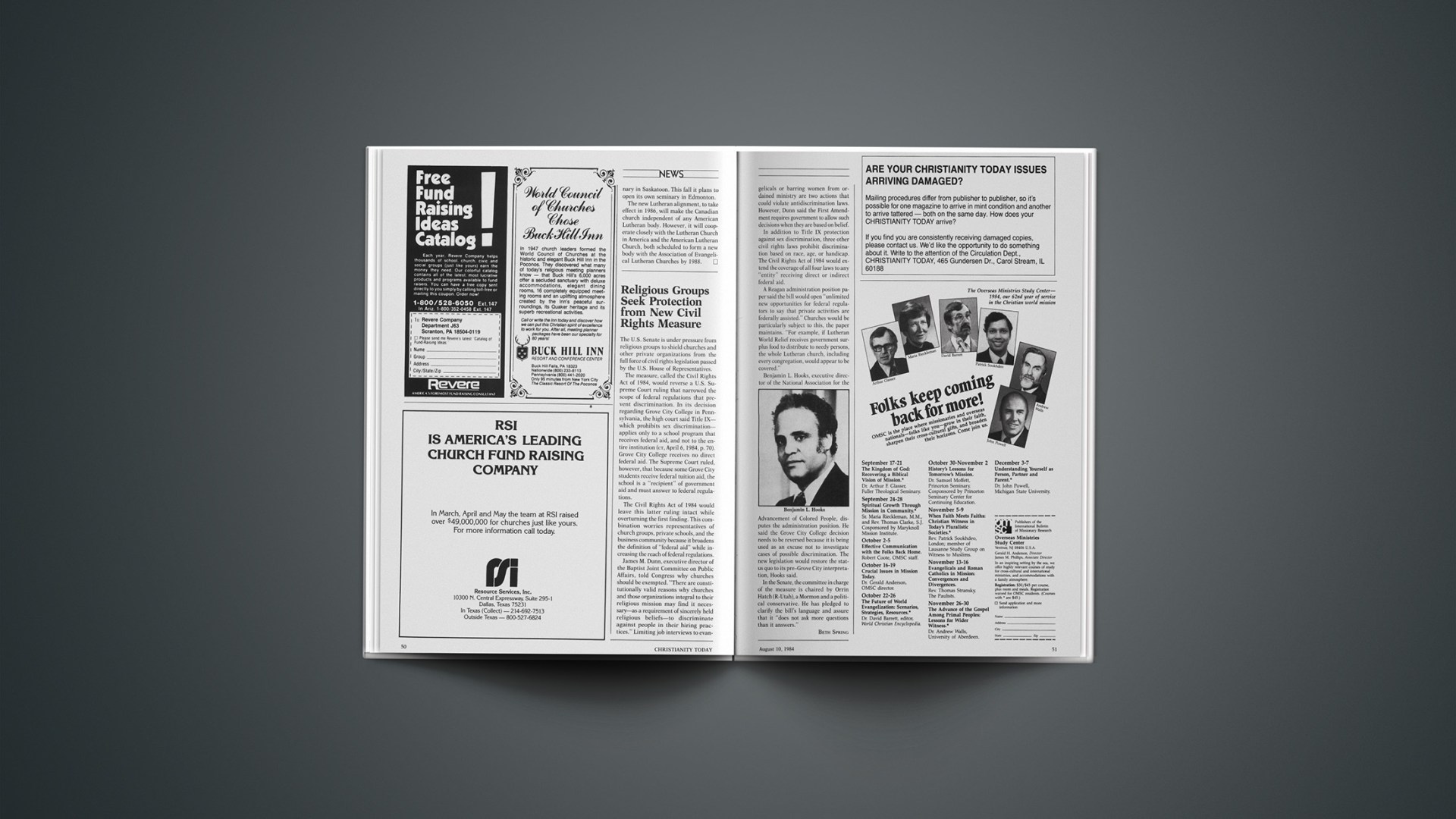The U.S. Senate is under pressure from religious groups to shield churches and other private organizations from the full force of civil rights legislation passed by the U.S. House of Representatives.
The measure, called the Civil Rights Act of 1984, would reverse a U.S. Supreme Court ruling that narrowed the scope of federal regulations that prevent discrimination. In its decision regarding Grove City College in Pennsylvania, the high court said Title IX—which prohibits sex discrimination—applies only to a school program that receives federal aid, and not to the entire institution (CT, April 6, 1984, p. 70). Grove City College receives no direct federal aid. The Supreme Court ruled, however, that because some Grove City students receive federal tuition aid, the school is a “recipient” of government aid and must answer to federal regulations.
The Civil Rights Act of 1984 would leave this latter ruling intact while overturning the first finding. This combination worries representatives of church groups, private schools, and the business community because it broadens the definition of “federal aid” while increasing the reach of federal regulations.
James M. Dunn, executive director of the Baptist Joint Committee on Public Affairs, told Congress why churches should be exempted. “There are constitutionally valid reasons why churches and those organizations integral to their religious mission may find it necessary—as a requirement of sincerely held religious beliefs—to discriminate against people in their hiring practices.” Limiting job interviews to evangelicals or barring women from ordained ministry are two actions that could violate antidiscrimination laws. However, Dunn said the First Amendment requires government to allow such decisions when they are based on belief.
In addition to Title IX protection against sex discrimination, three other civil rights laws prohibit discrimination based on race, age, or handicap. The Civil Rights Act of 1984 would extend the coverage of all four laws to any “entity” receiving direct or indirect federal aid.
A Reagan administration position paper said the bill would open “unlimited new opportunities for federal regulators to say that private activities are federally assisted.” Churches would be particularly subject to this, the paper maintains. “For example, if Lutheran World Relief receives government surplus food to distribute to needy persons, the whole Lutheran church, including every congregation, would appear to be covered.”
Benjamin L. Hooks, executive director of the National Association for the Advancement of Colored People, disputes the administration position. He said the Grove City College decision needs to be reversed because it is being used as an excuse not to investigate cases of possible discrimination. The new legislation would restore the status quo to its pre-Grove City interpretation, Hooks said.
In the Senate, the committee in charge of the measure is chaired by Orrin Hatch (R-Utah), a Mormon and a political conservative. He has pledged to clarify the bill’s language and assure that it “does not ask more questions than it answers.”










